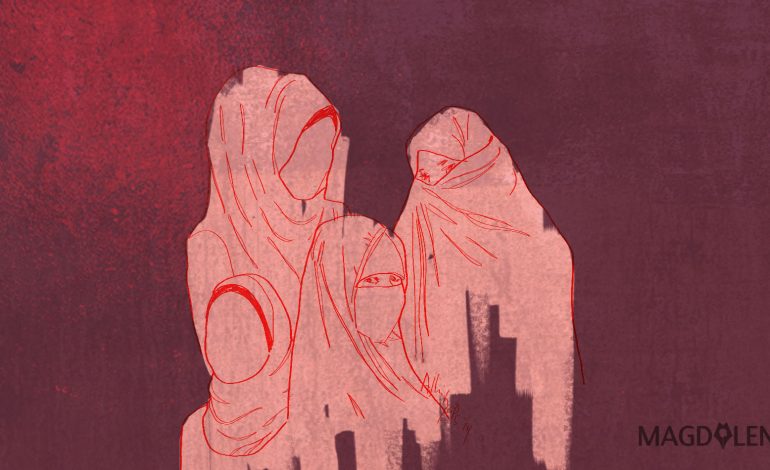JALANAN: An Uplifting Tale When You Least Expect It

The thing about most documentaries is that I tend to come out feeling a little smacked in the face after watching them. I did not know these things were happening! What is wrong with the world? This is terrible. What can we do about this? I feel enlightened, devastated and uncomfortable. I feel helpless.
Although admittedly my repertoire with documentaries is not extensive, this is the way I have felt after watching, to name a few, Michael Moore’s Bowling For Columbine, Al Gore’s An Inconvenient Truth, Joshua Oppenheimer’s The Act Of Killing, and Leonard Helmrich’s Position Among The Stars. I have always thought that the emotions those excellent films instill within me are the hallmark of an excellent documentary and the very purpose of documentaries.
With JALANAN, it was a different experience. Created by Canadian writer/filmmaker Daniel Ziv, this is a movie about street musicians living on the gritty streets of Jakarta. We follow the three main characters — Titi, Boni and Ho — as they make a living for themselves busking from one bus to another. We are invited to see where they live and whom they love. We listen to their daily reflections on life in the city, some of which they take seriously, and some others they take with an explosive sense of humor.
I cried, yes. And I also laughed. But I never once felt like a finger was pointing at me, a decidedly-middle-and-aspiring-upper class working girl who contributes a lot to the city’s traffic and consistently waves buskers away at her window. And if you look at the general fabric and plot of the movie, there are plenty of opportunities for it to become that inconveniently truthful and even condescending.
Instead, the movie made me feel like all this time I have been missing out on a lot: the details, the fun, the characters, the city’s busker music and the city’s own “music”. I walked out of the cinema thinking that, all this time when I thought that what I was hearing was Jakarta’s white noise, to be tolerated to the point of ignorance, it was actually honestly brutal, and hilariously funny “music”. I just never realized it.
How this perfect marriage of juxtapositions is achieved, I have no idea. It is funny, but when I crack up it is not for comedy, but it is because either Titi, Boni, or Ho say something that is so honest it is the smartest thing I’ve heard anyone say in this city for a long time. So it warms me, shames me, and makes me laugh. It is sad but when I shed some tears it is not for tragedy; it’s because the characters do something that is so unexpectedly valiant and wise it warms me, shames me, and makes me cry.
I can’t even pinpoint a general trait that makes me feel so moved. I can point to their resilience, their struggles, their hopes, their little glorious achievements, but it’s not quite that. It’s just…. them. Titi, Boni, and Ho come across as the kind of people whom you regret not getting to know better back when you had the chance because you were so self-absorbed you didn’t notice them. They are supremely interesting, observant, happy, hard, kind, grateful, critical, dignified… they are rock stars.
Ho criticizes his girlfriend’s use of “Insha Allah (God willing)” while they are not even Arabs. Titi calmly reminds her parents that busking is the life she happily chooses. And Boni nods his head respectfully at the eviction officer, saying that he understands his castle beneath the bridge for the past decade is not actually his, and he would be happy to move if necessary. But not before he observes with a cackling laughter that everybody’s shit comes out the same, no matter how much it cost going in. There are so many little gems. I start wondering whether they would like to be my friends.

Eighty percent of this movie showcases the director’s ability to see people and spot their inner voices. In a recent post movie screening’s Q&A session, an audience asked how Ziv chose the characters. He answered lightly that he rode buses, scouted about for a while, spotted some potentials, talked to them, and offered them this project.
But I suspect that it can’t have been that simple, and it certainly isn’t easily replicated by someone trying to do a similar thing. The quality of this film begins from Ziv’s ability to spot and choose these three unique individuals out on the streets. It is not just their music, which seems notably more soulful than other buskers. It is their unexpected personalities that win the audience. In addition to that, all three characters spoke as if they hadn’t put a single premeditated thought into what they were saying. The film feels like it was told and controlled not by the director, but by Titi, Boni, and Ho.
This was a tasteful, artful, and respectful choice to make, and I commend Ziv for that.
JALANAN will be screened in theatres in Jakarta starting April 10.
About Tiza Mafira
Tiza Mafira is a lawyer based in Jakarta and is passionate about environmental issues. Most of the things she writes about have nothing to do with any of that.






















